Are you considering collaborating with influencers to boost your brand's visibility? An influencer testimonial agreement is essential to ensure both parties clearly understand the expectations, benefits, and responsibilities involved. This straightforward template will help you outline the key elements needed for a successful partnership, making it easier to achieve your marketing goals. Read on to discover how you can create a compelling agreement that fosters positive relationships and drives engagement!

Clear identification of parties involved
An influencer testimonial agreement outlines the relationship between brands and influencers. The parties involved typically include the brand entity (business name, contact address, and industry focus) and the influencer (personal name, social media handles, and contact details). This agreement is crucial for establishing legal accountability and ensuring clear expectations regarding content creation, posting schedules, and compensation. Precise definitions of each party strengthen the agreement's validity and facilitate smooth collaboration, enhancing brand visibility and influencer credibility across platforms like Instagram, YouTube, or TikTok.
Detailed scope of testimonial work
An influencer testimonial agreement outlines the specific responsibilities and expectations for a social media influencer regarding promotional activities. The scope of the testimonial work includes crafting authentic narratives about the product's benefits, which can encompass an array of platforms such as Instagram, TikTok, or YouTube. The influencer will produce content such as photos, videos, or blog posts highlighting features and user experiences during the contract term, typically ranging from three to six months. Each piece of content must be aligned with the brand's messaging guidelines and be disclosed properly to comply with the FTC regulations. Tracking engagement metrics, including likes, shares, and comments, will be required, determining the effectiveness of the testimonial. Regular communication with the brand representatives will ensure that the influencer receives feedback and guidance to maximize the reach and impact of their promotional efforts.
Compensation and payment terms
Influencer compensation structures vary significantly, including flat fees, per-post rates, or performance-based incentives. For instance, a beauty influencer with 100,000 followers might receive $1,000 for a sponsored Instagram post. Payment terms often stipulate a 50% upfront deposit before the campaign launch, with the remaining balance payable upon project completion. Influencers must also consider potential affiliate commissions where they earn a percentage of sales generated through their unique discount code. Timeliness in payments--usually 30 days after invoice submission--is crucial for maintaining a positive working relationship. Clear documentation of these terms ensures transparency and minimizes misunderstandings between brands and influencers.
Content approval and modification rights
Influencer testimonial agreements often outline the parameters surrounding content creation, approval processes, and modification rights to ensure both parties are protected and aligned. These agreements specify that influencers, like social media personalities or bloggers, must obtain approval from the brand before publishing any content. This ensures brand messages align with marketing goals. Modification rights should be clearly articulated, detailing the extent to which the brand can request changes or edits to the influencer's content for branding consistency and compliance with advertising guidelines. Furthermore, timelines for content review and the approval process should also be included to prevent delays. Clear definitions of the content types, such as photographs, videos, or written posts, are essential to establish expectations from the outset, safeguarding the interests of both influencers and brands.
Duration and termination conditions
Influencer testimonial agreements often outline the duration and termination conditions to ensure clarity between brands and influencers. Typically, the duration of the agreement is set for a specific time period, such as six months or one year, allowing for ample time for product promotion and visibility. Termination conditions may include provisions for early termination, which might require notice (often 30 days) from either party if performance metrics are not met, or if unforeseen circumstances arise. Additionally, if the influencer breaches any terms, such as failing to deliver the agreed-upon posts or violating brand guidelines, the brand holds the right to terminate the contract immediately. These conditions help maintain a professional relationship while safeguarding the interests of both parties involved.
Letter Template For Influencer Testimonial Agreement Samples
Letter template of influencer testimonial agreement for social media promotions
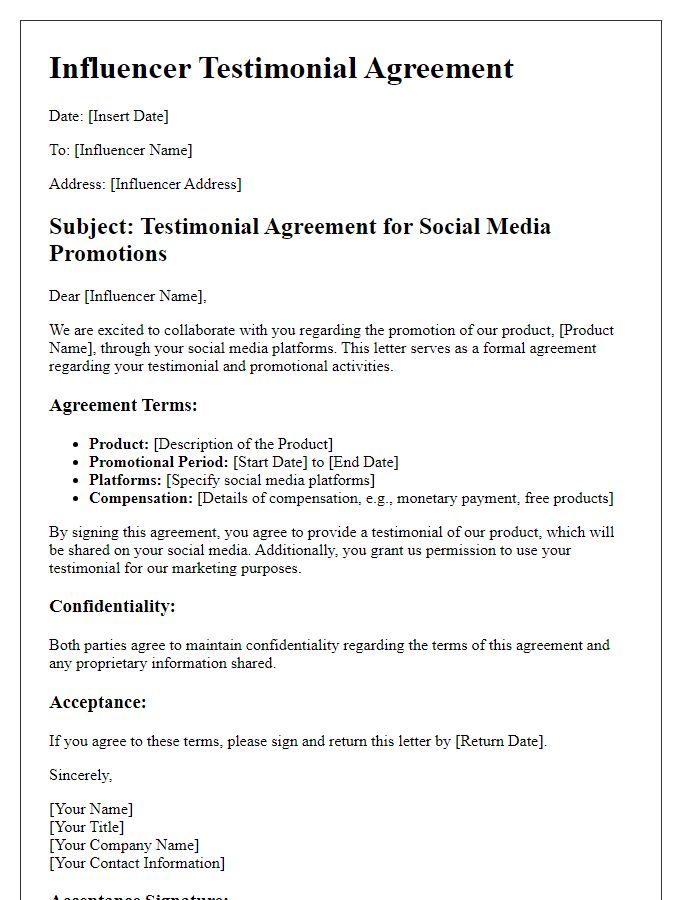
Letter template of influencer testimonial agreement for blog collaborations
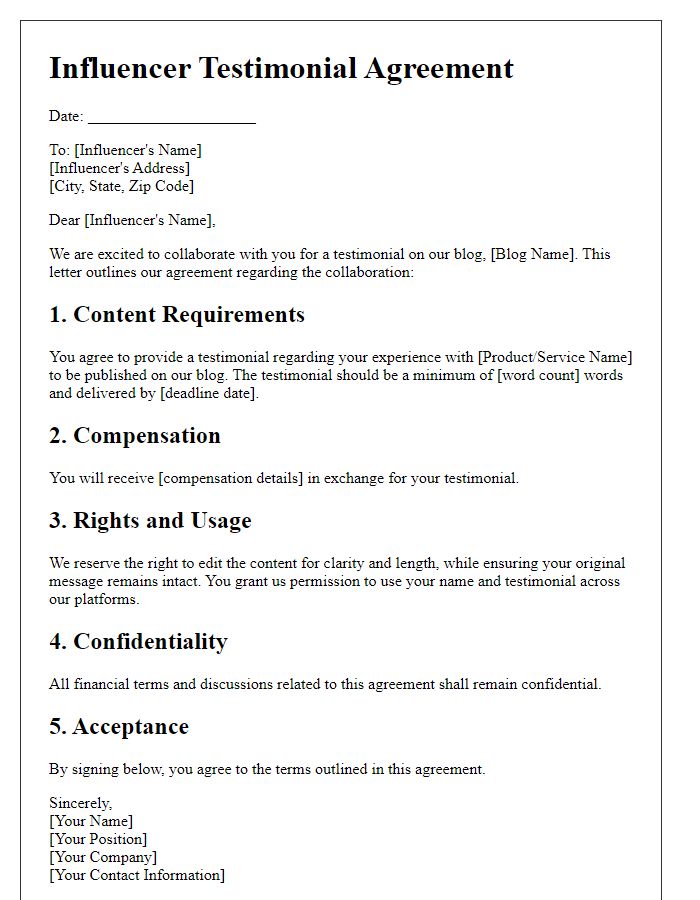
Letter template of influencer testimonial agreement for sponsored content
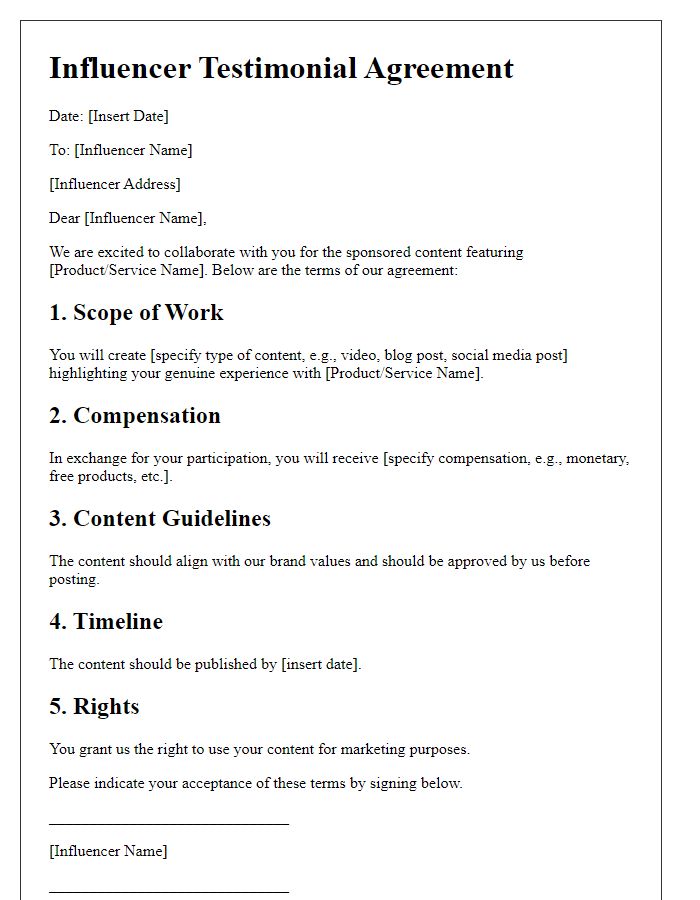
Letter template of influencer testimonial agreement for affiliate marketing
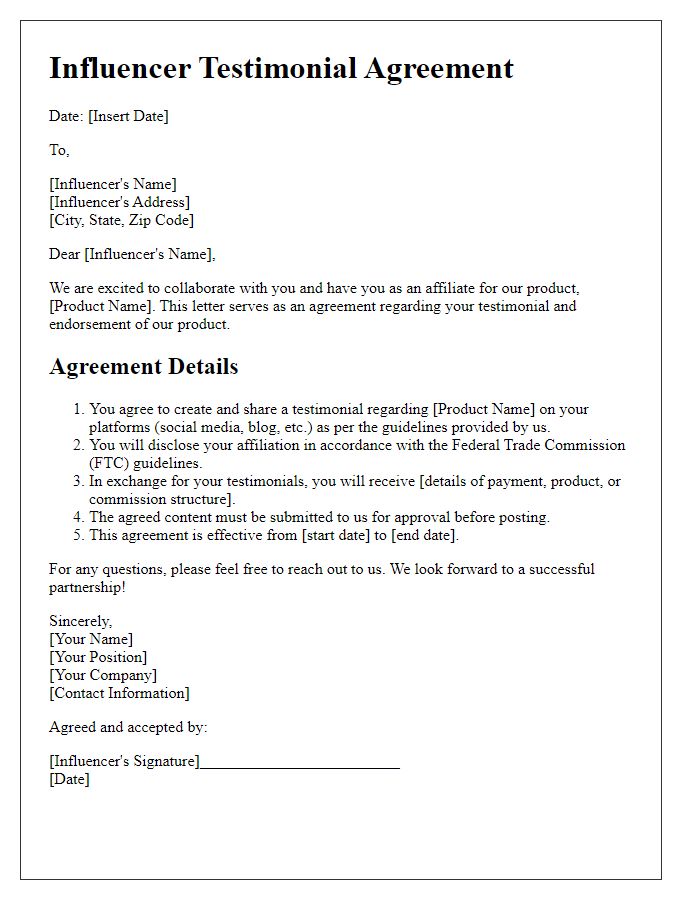
Letter template of influencer testimonial agreement for brand ambassadorship
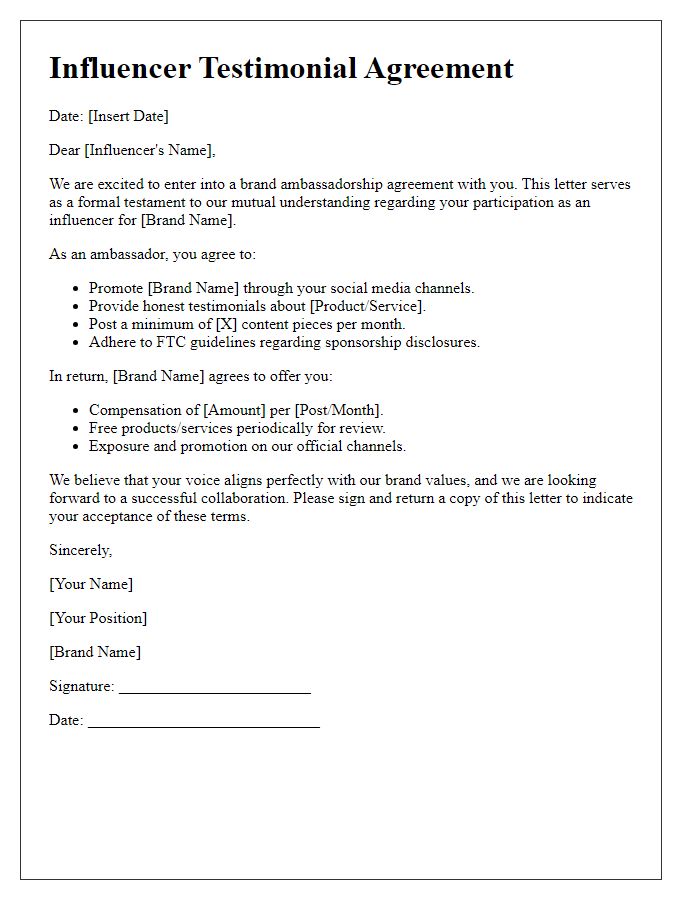
Letter template of influencer testimonial agreement for events and appearances
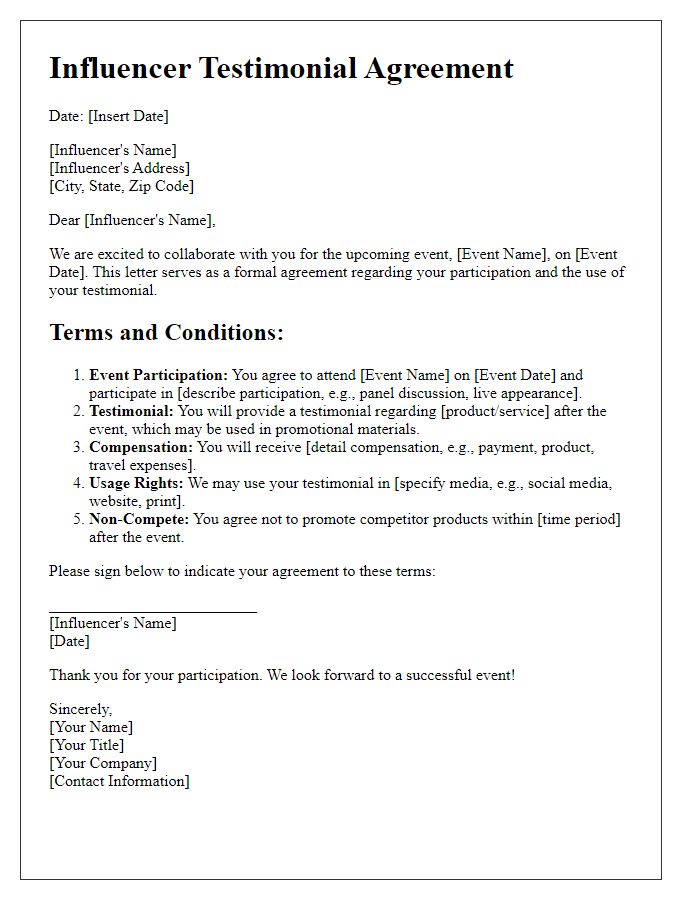
Letter template of influencer testimonial agreement for video endorsements
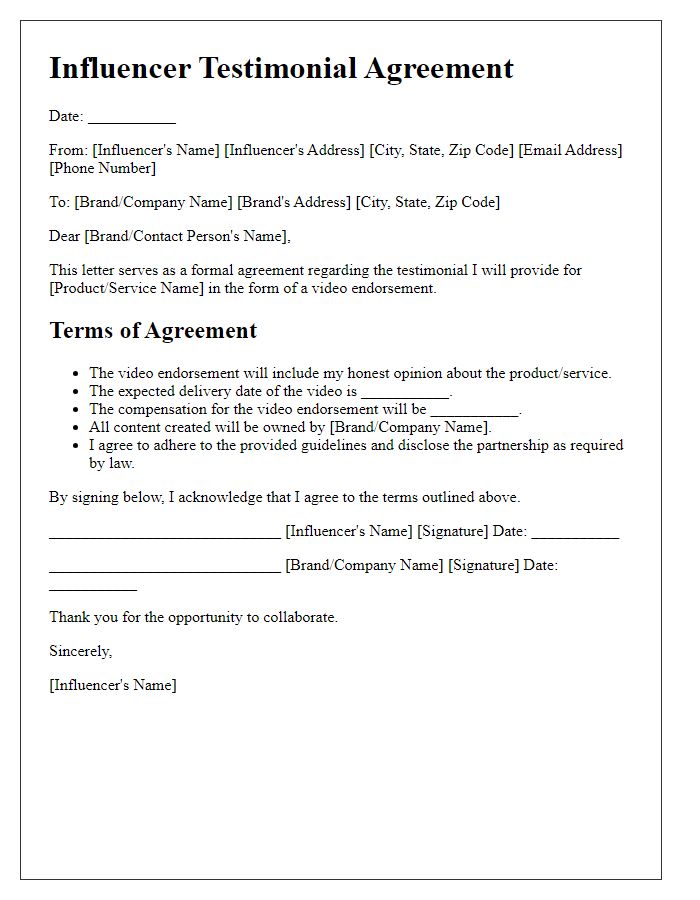
Letter template of influencer testimonial agreement for email marketing campaigns
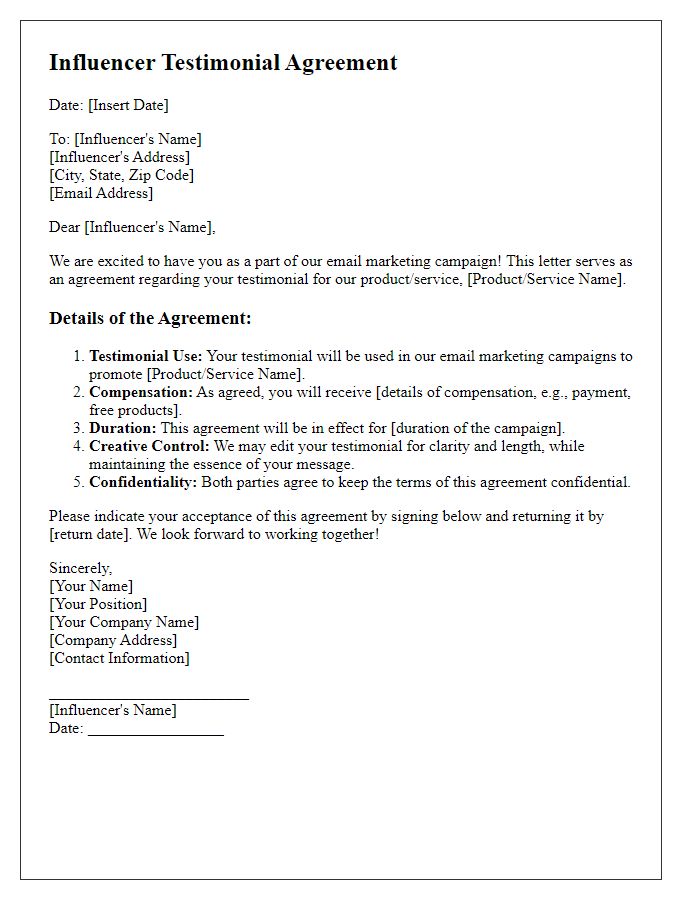

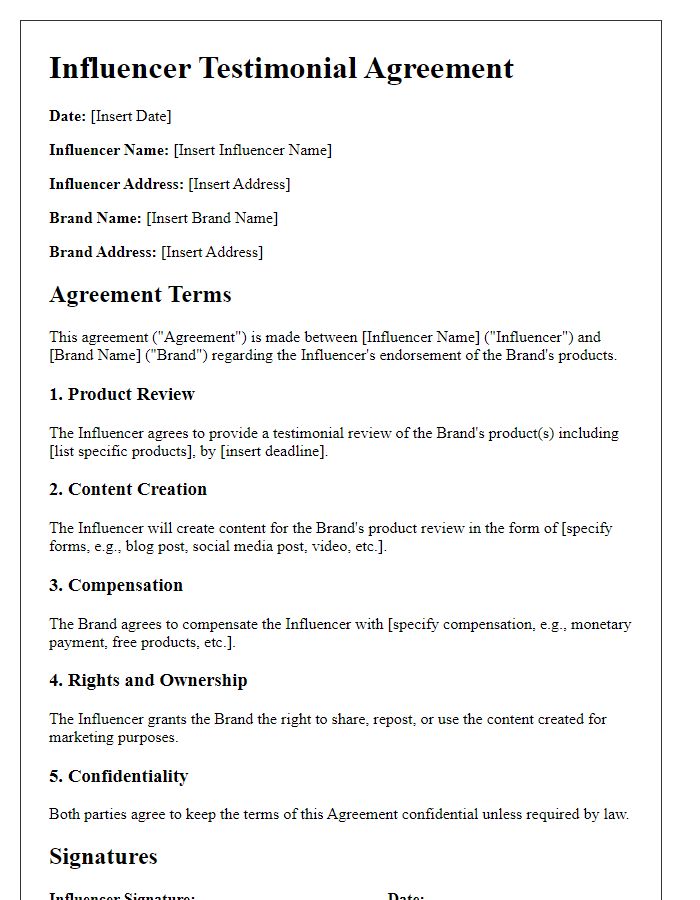
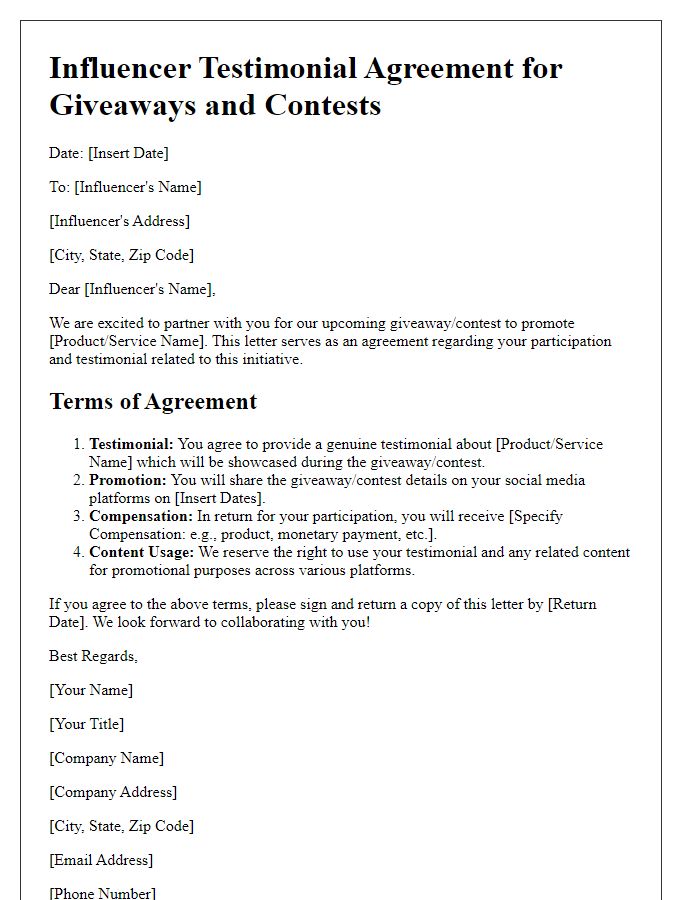


Comments